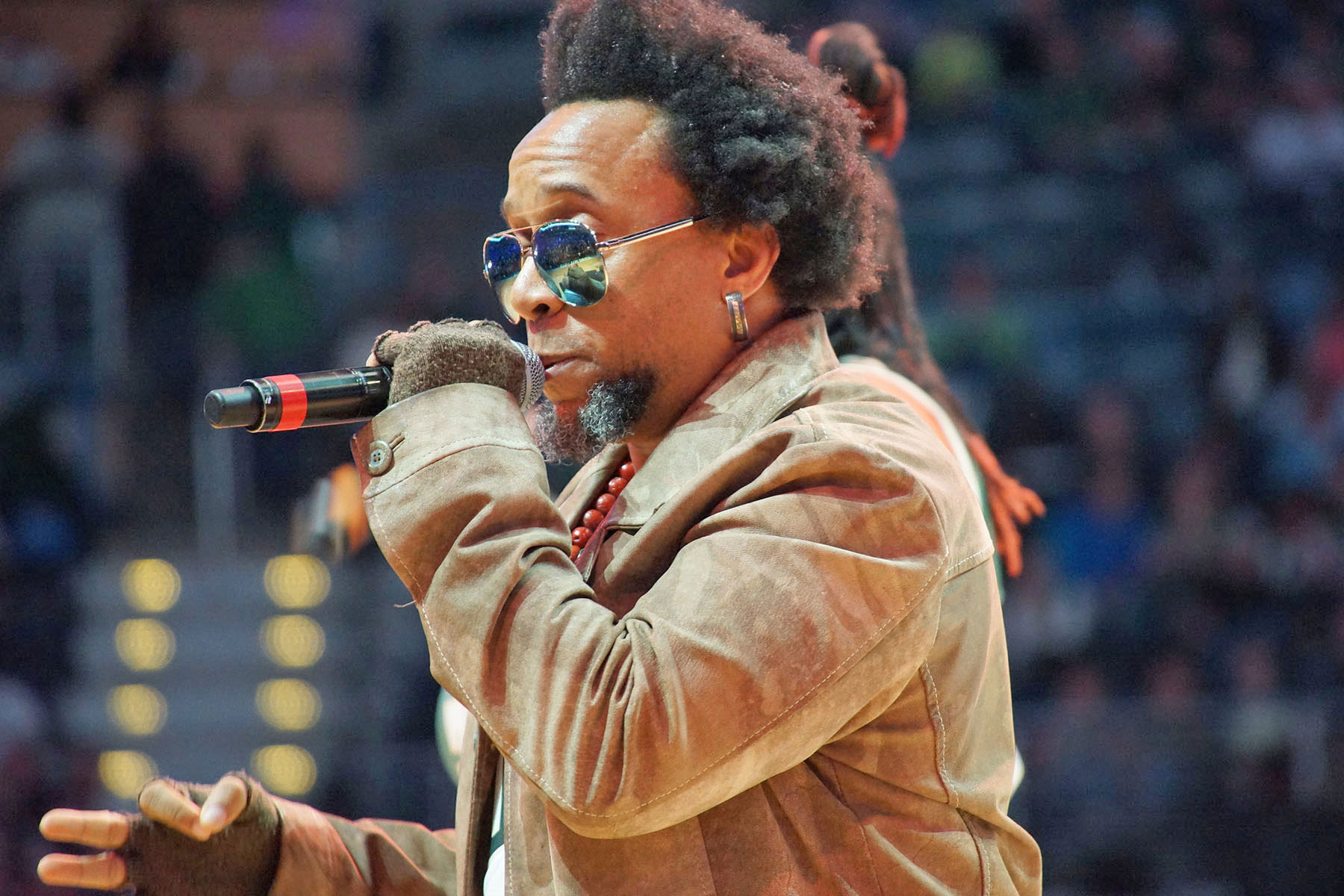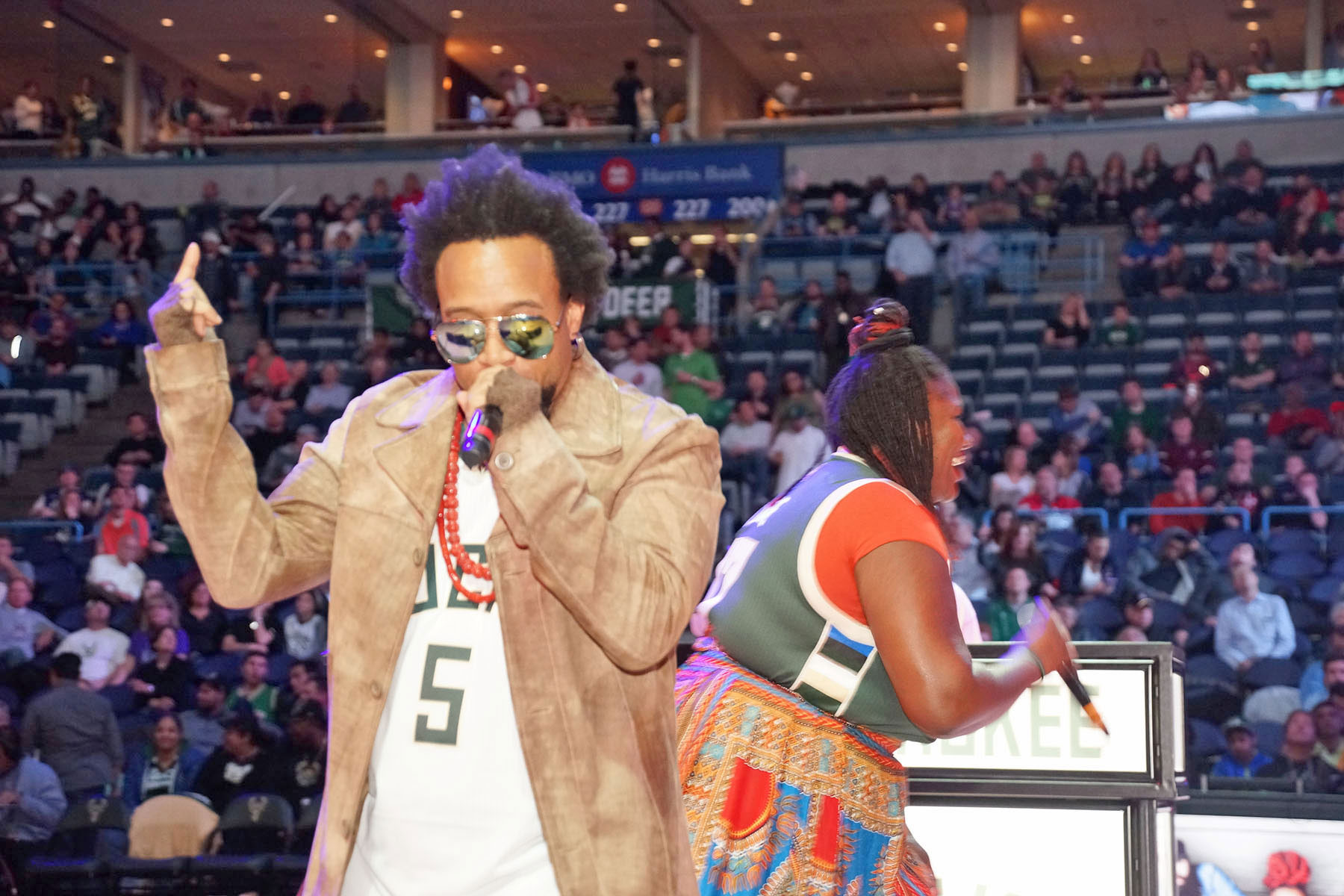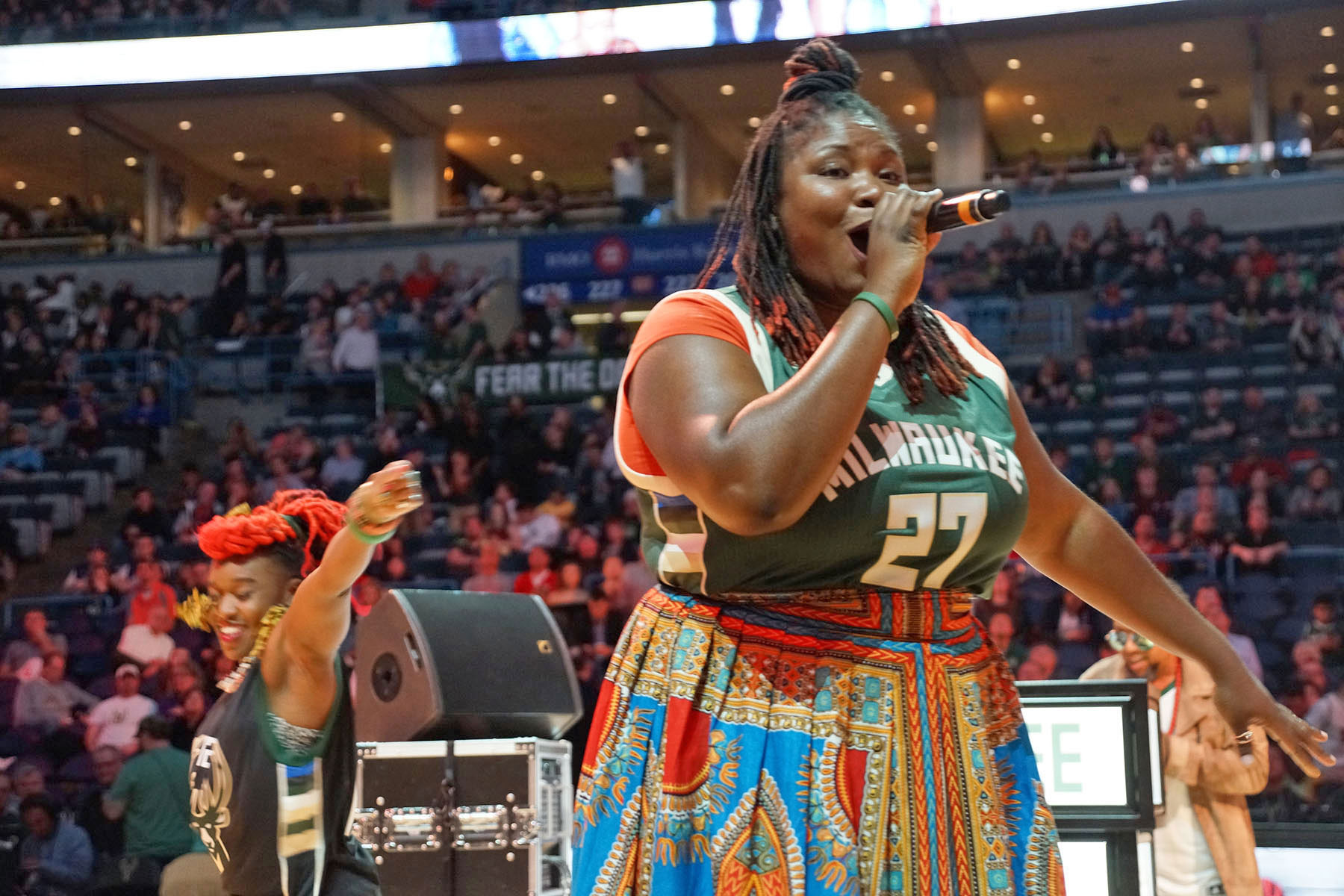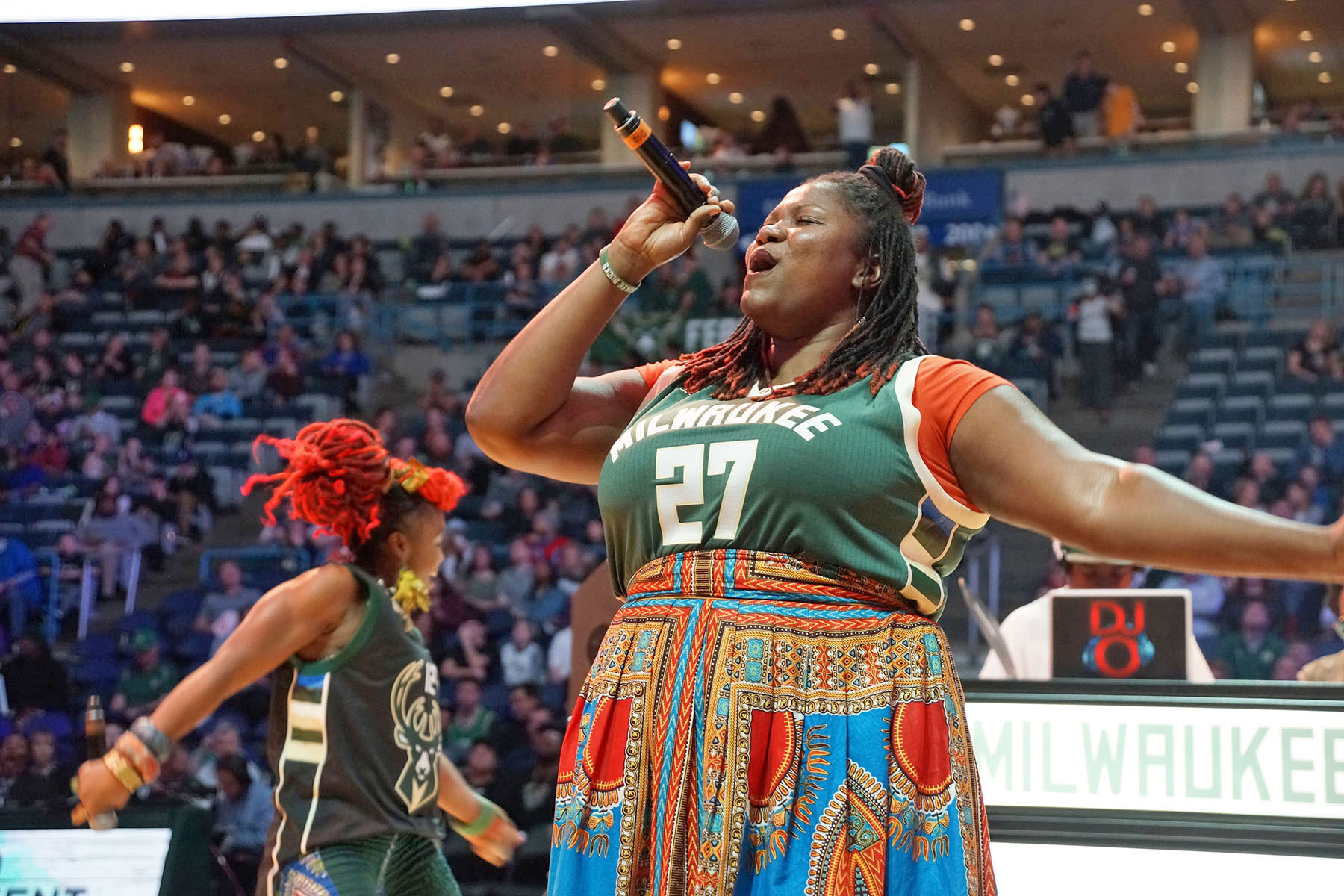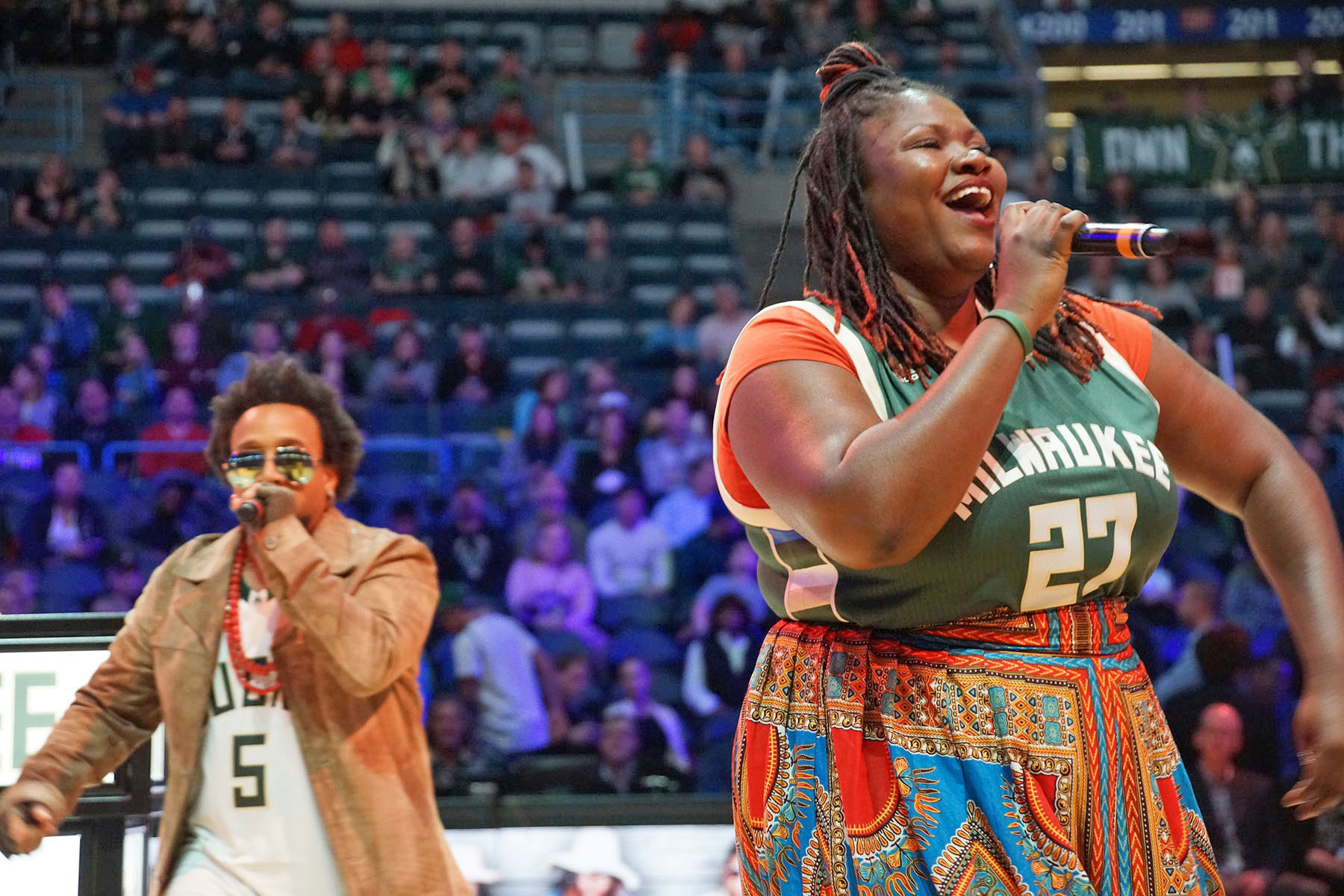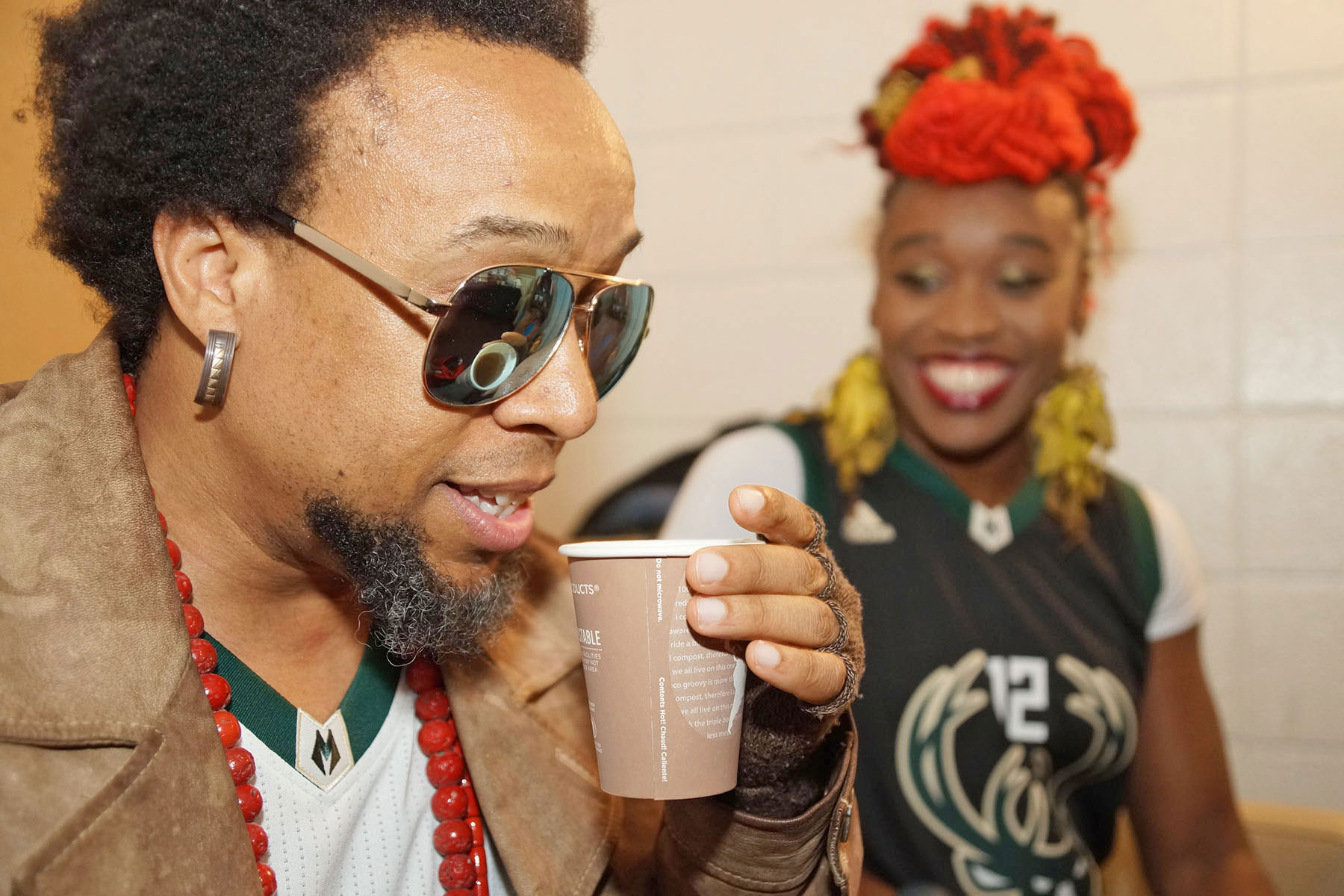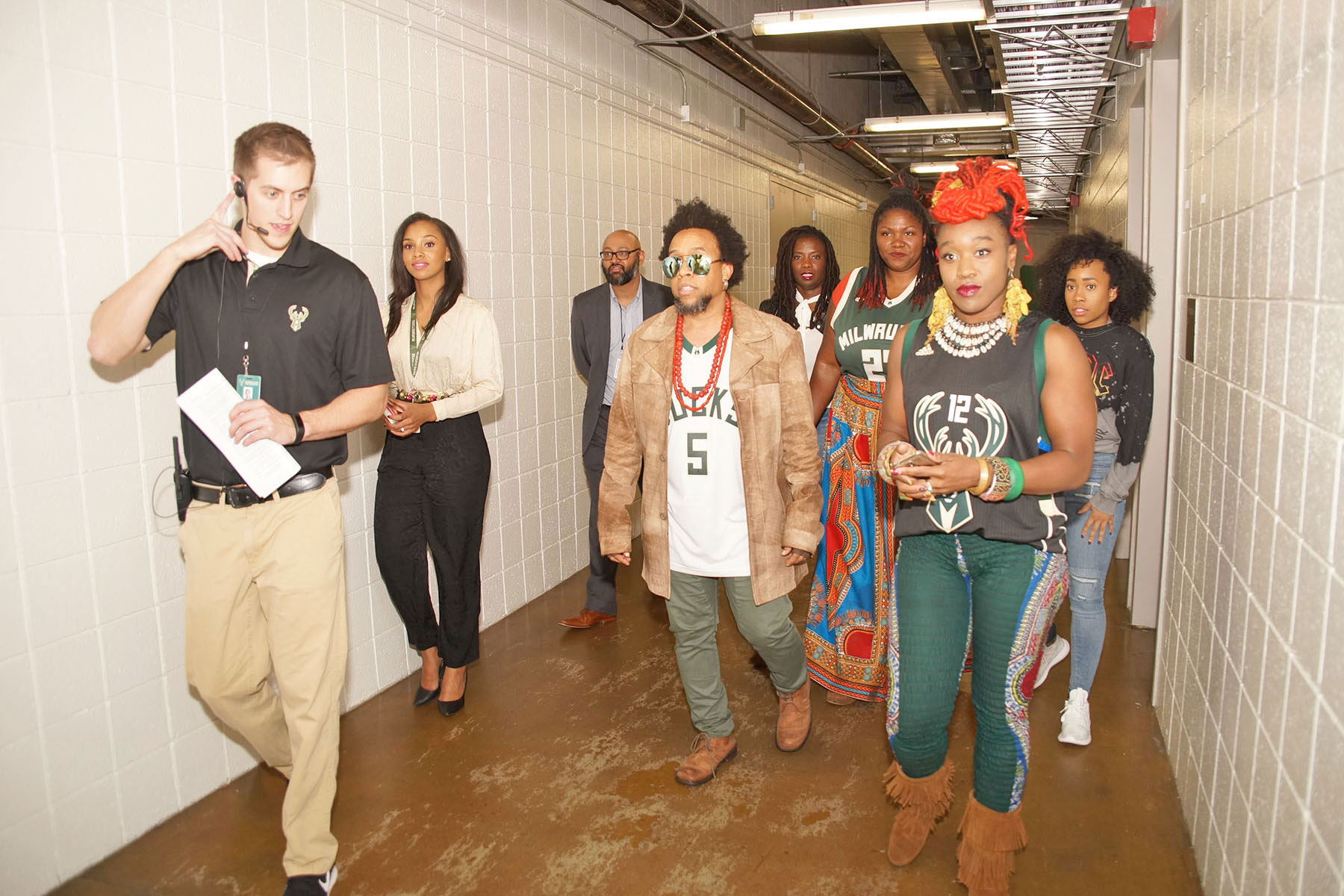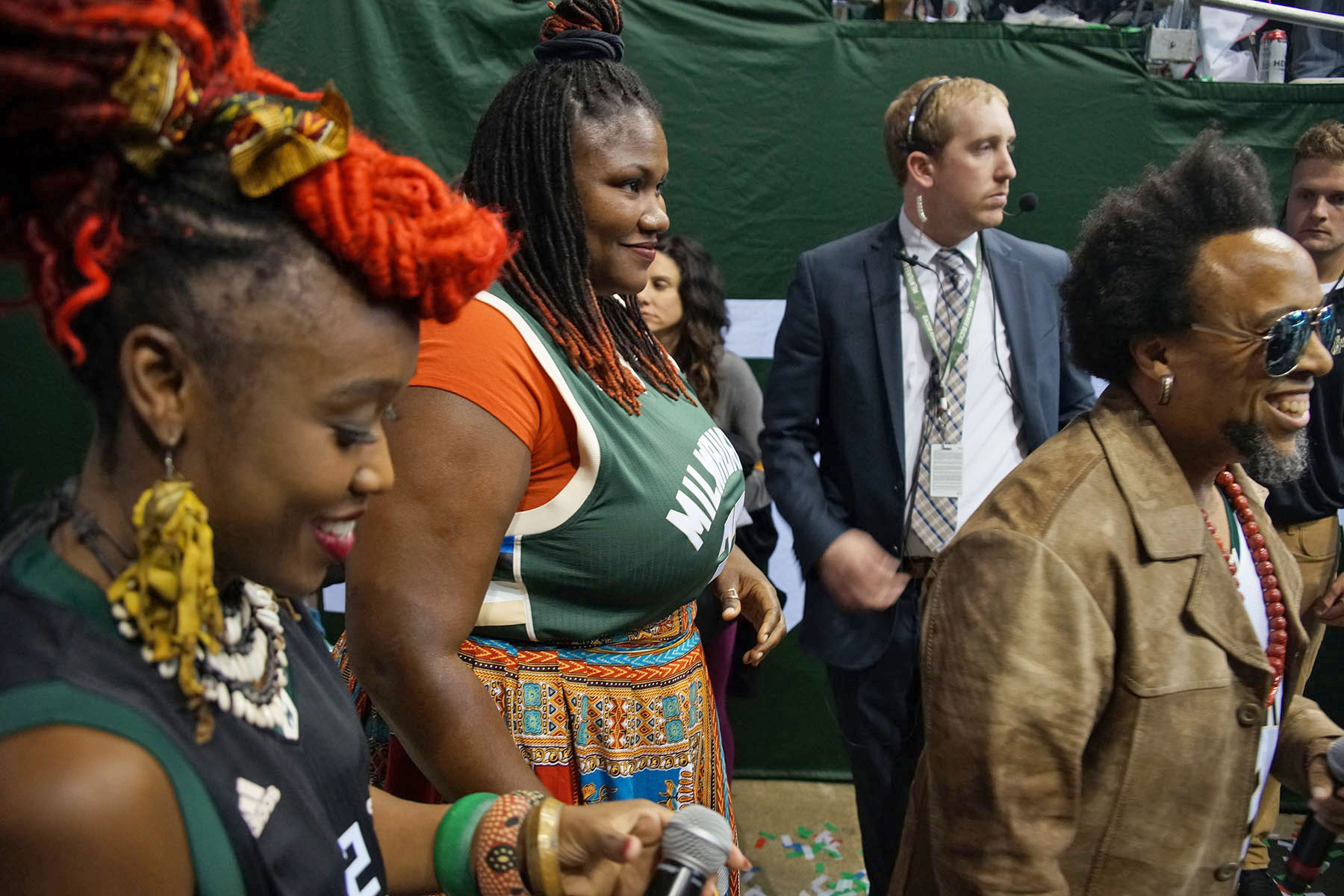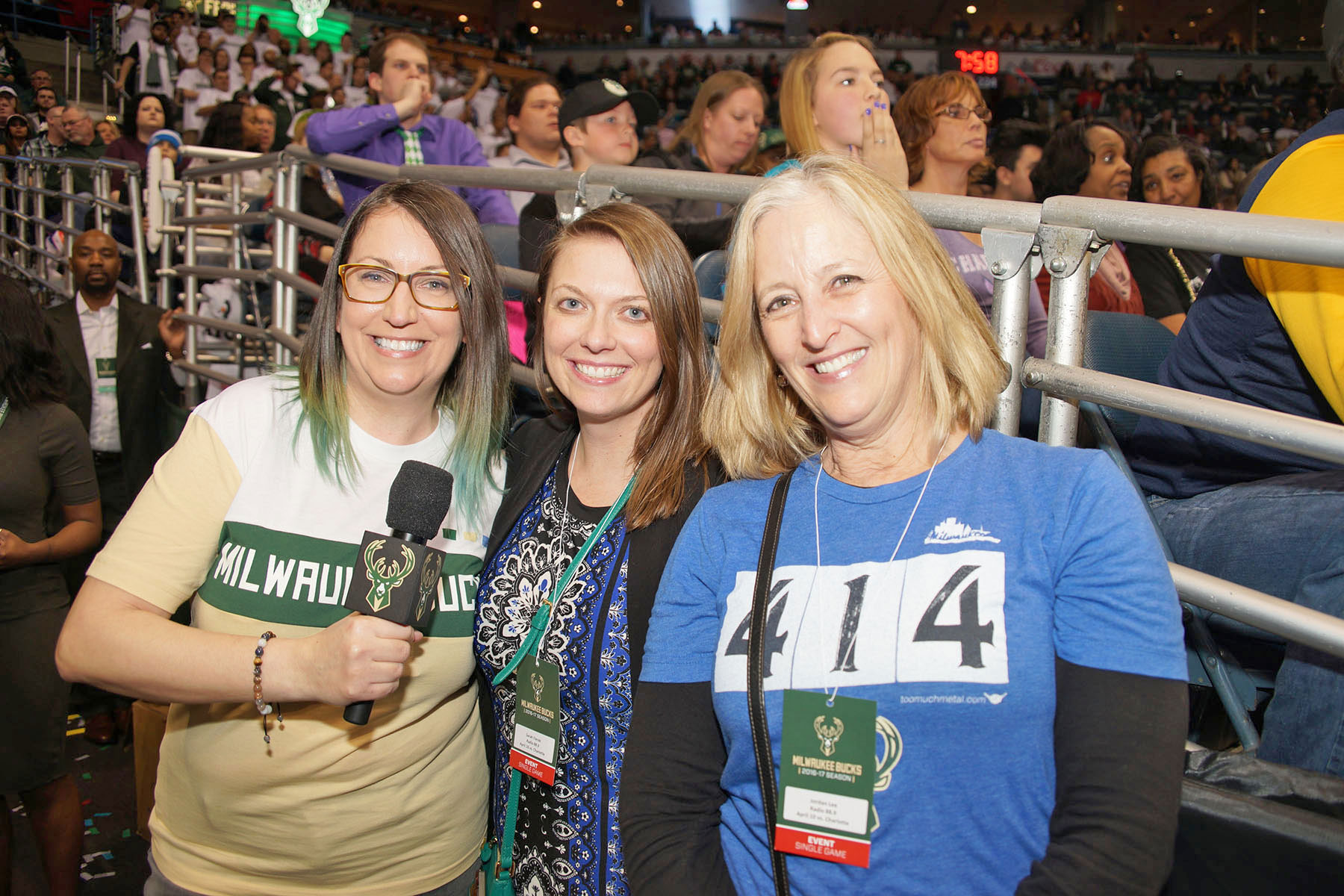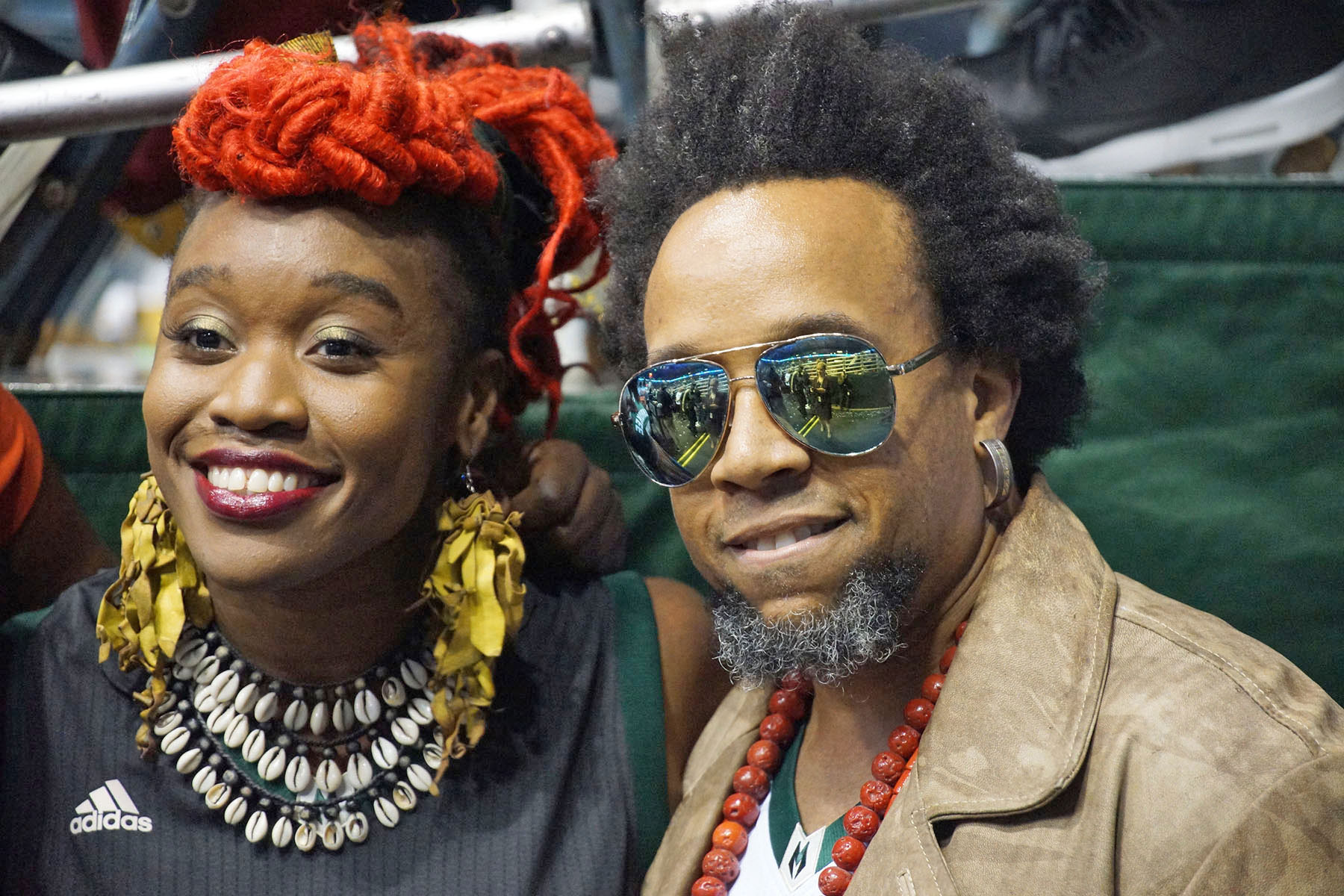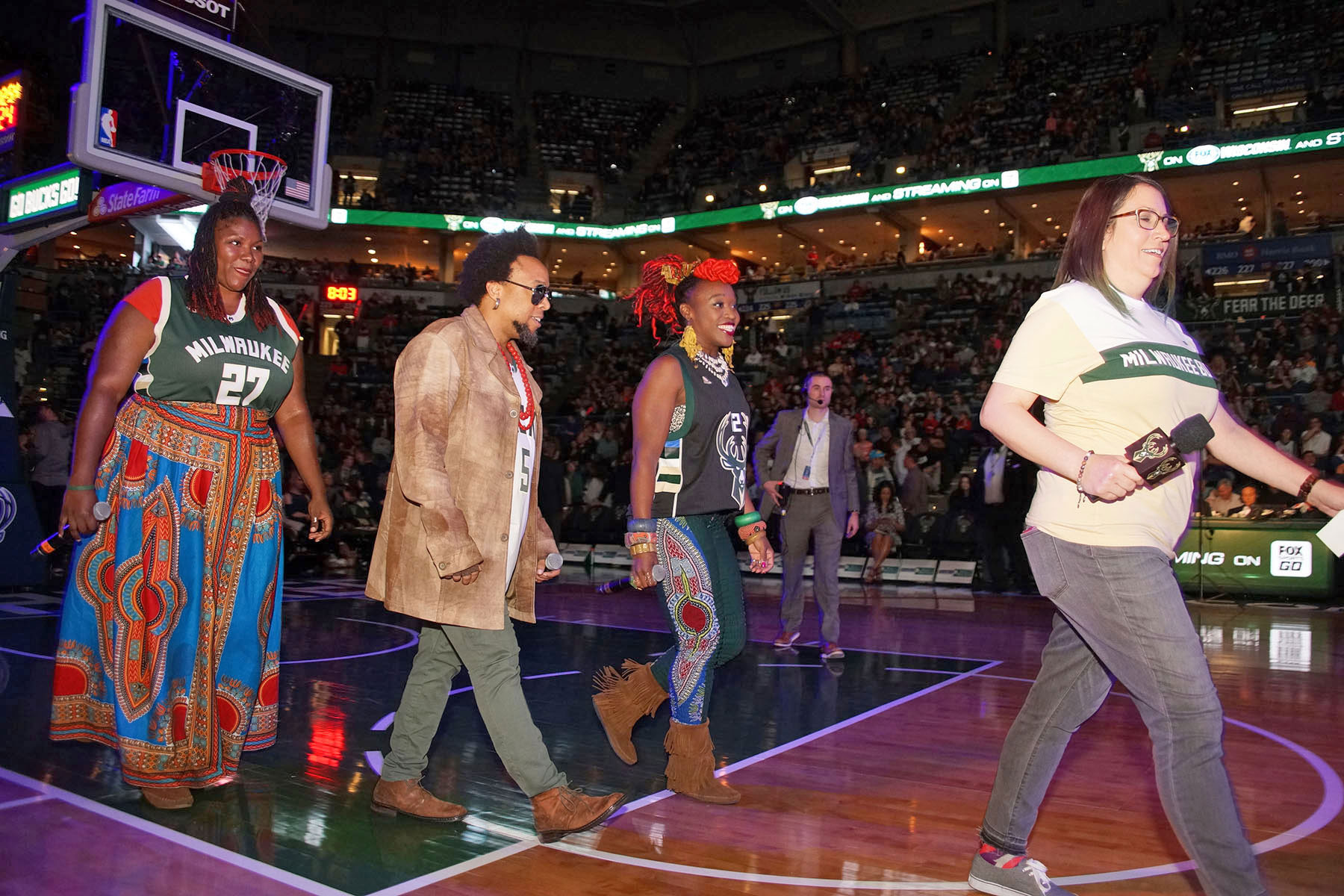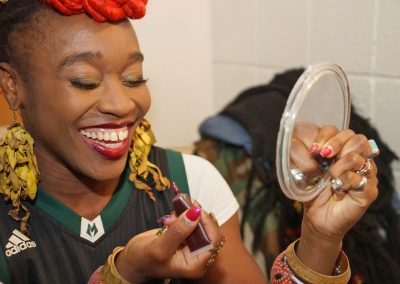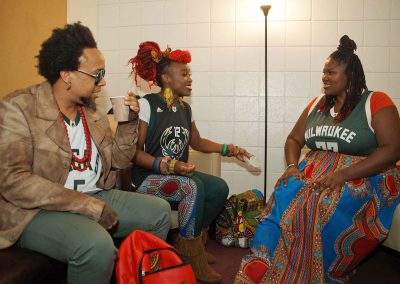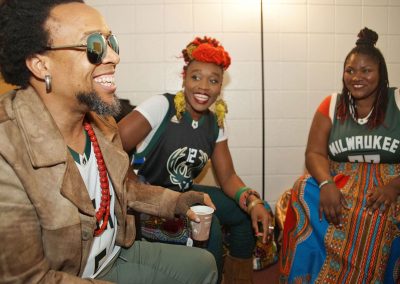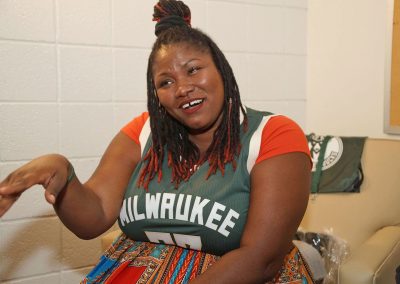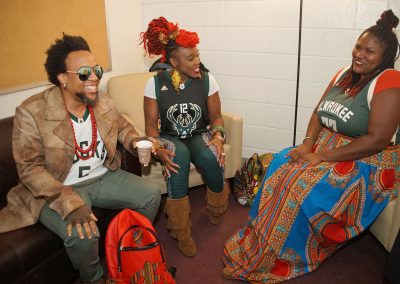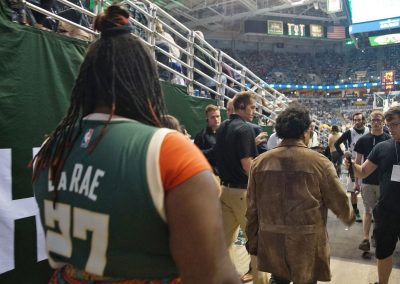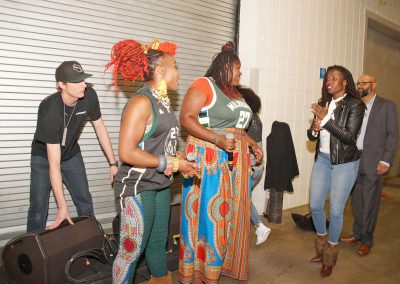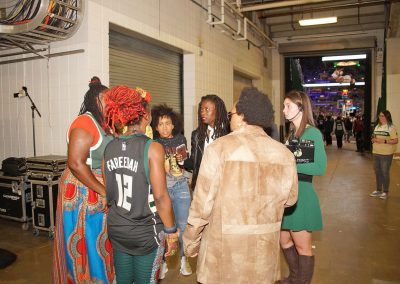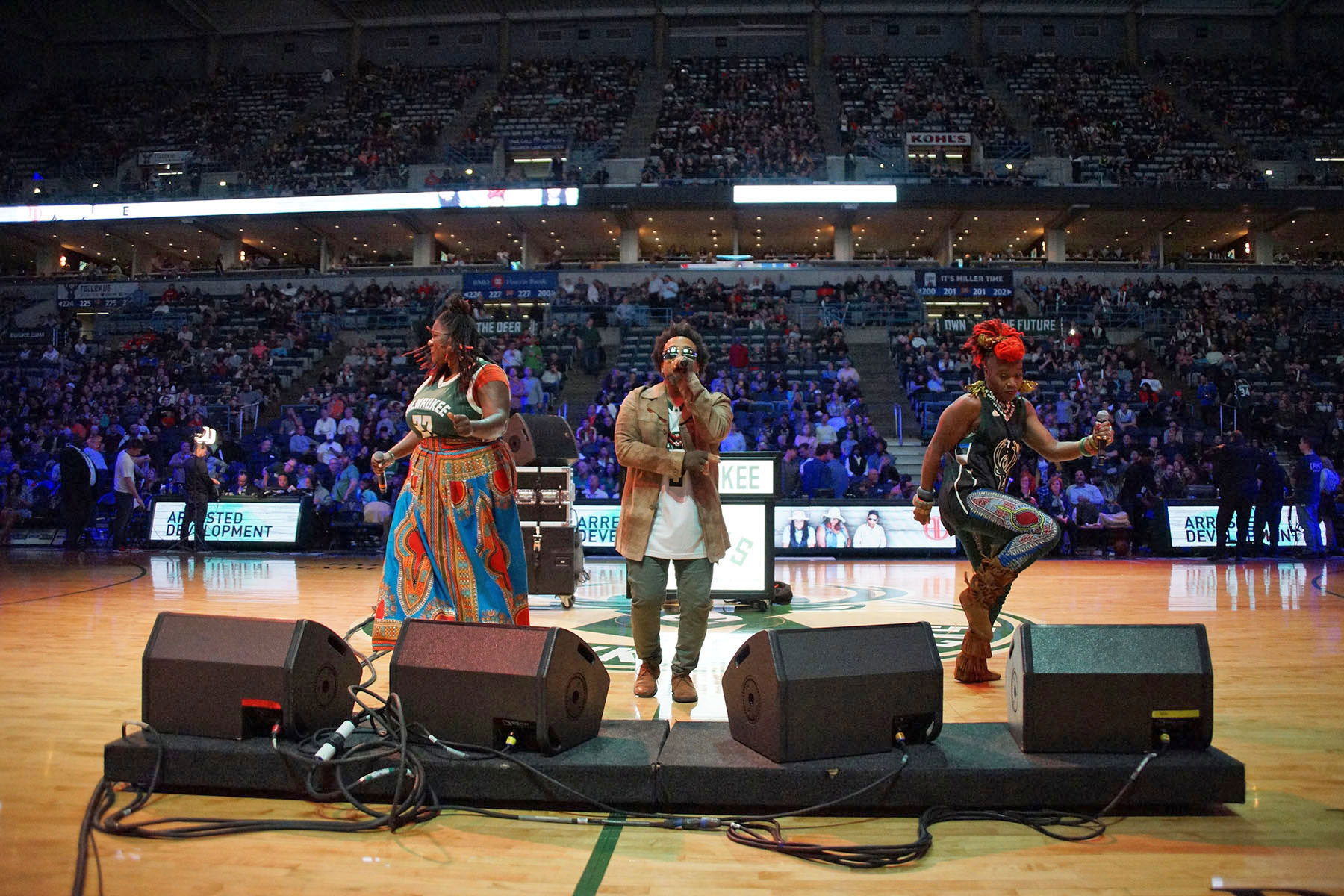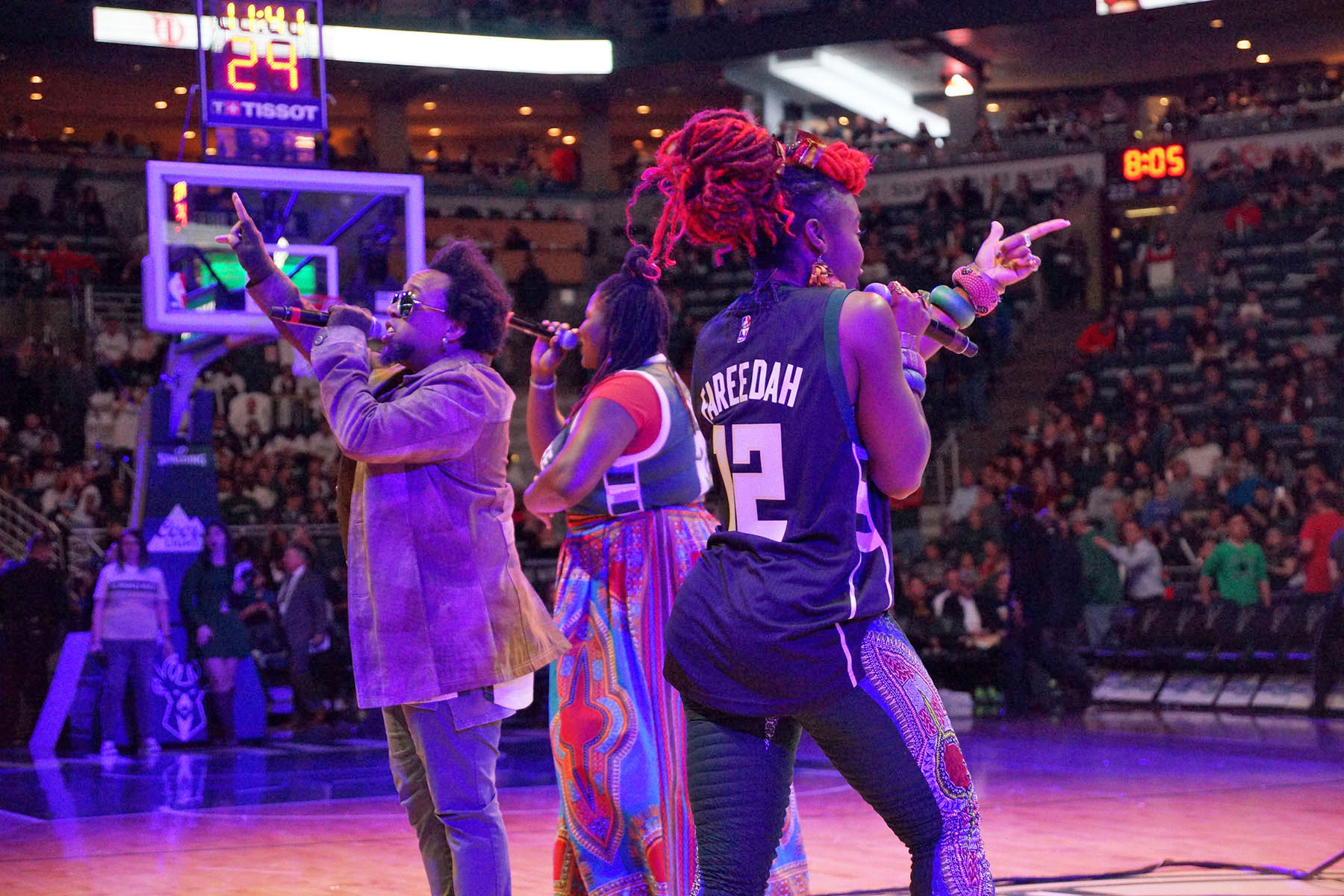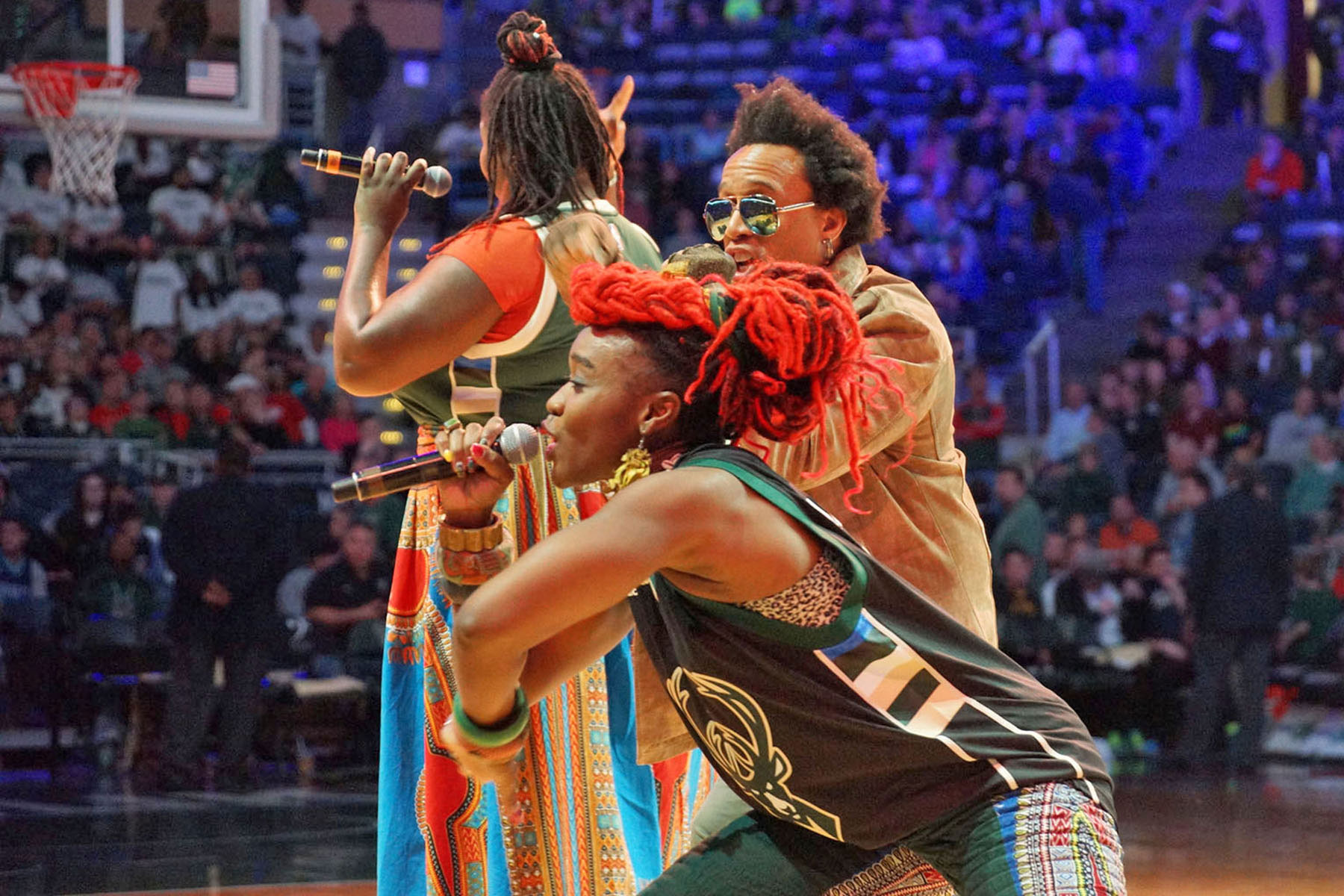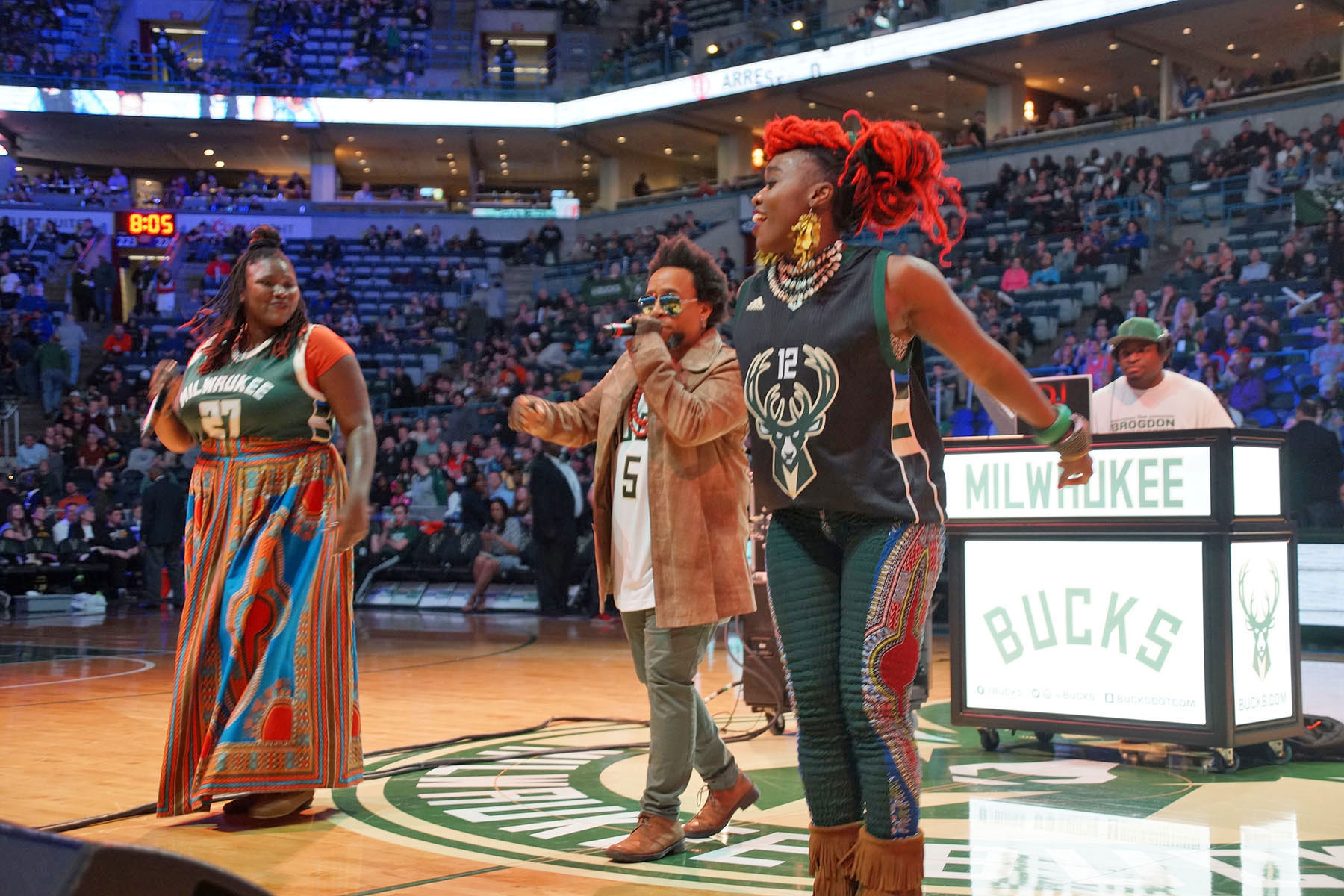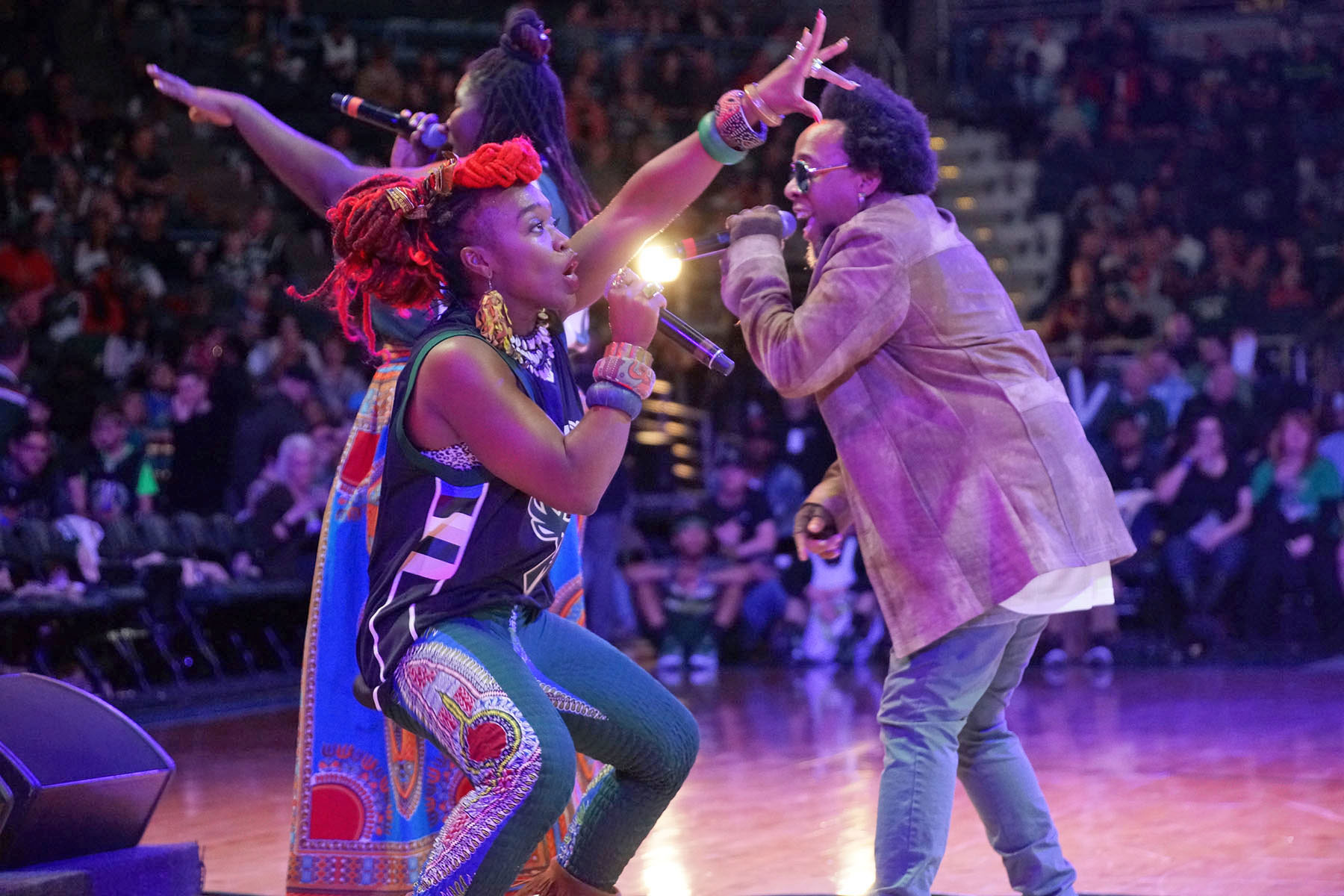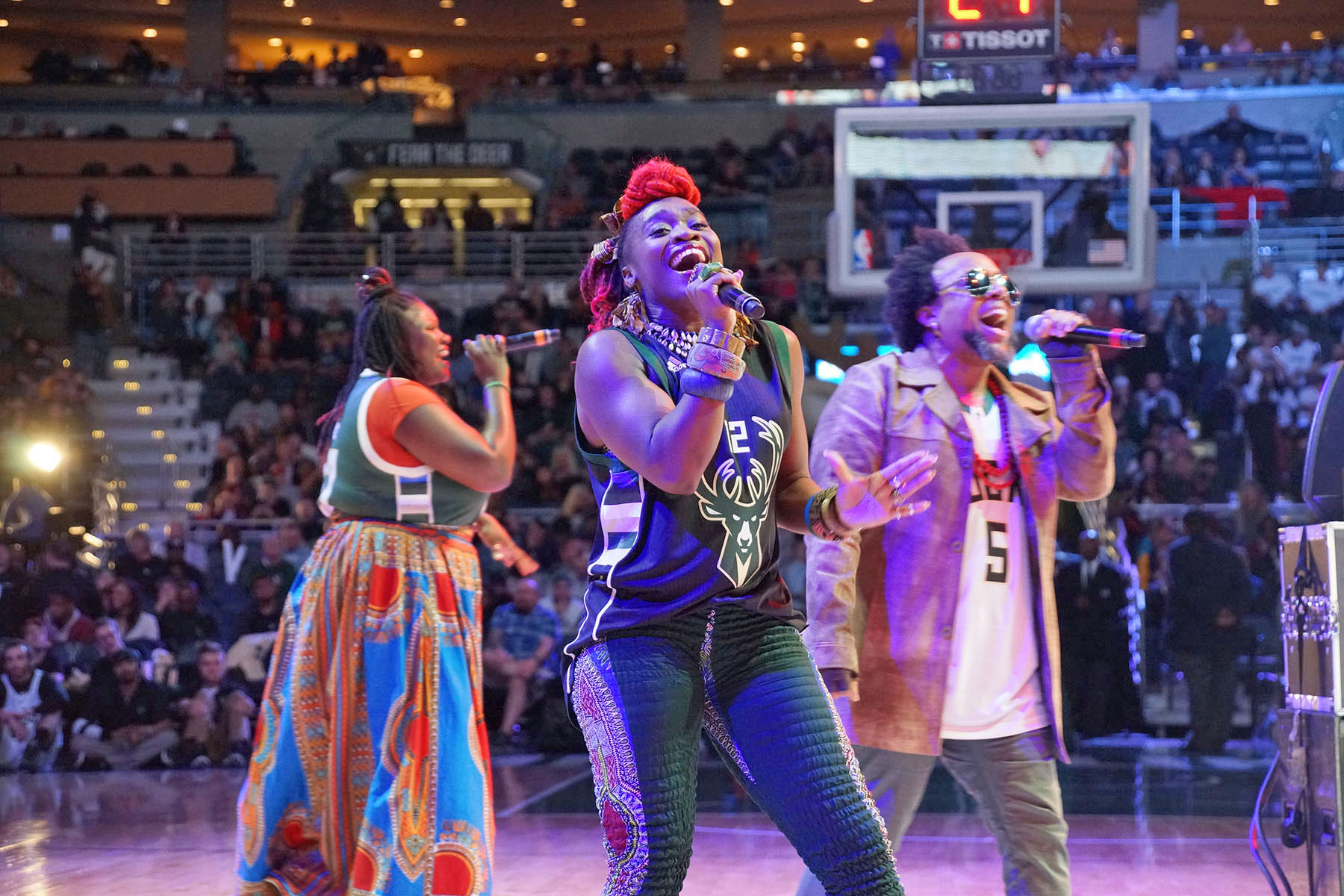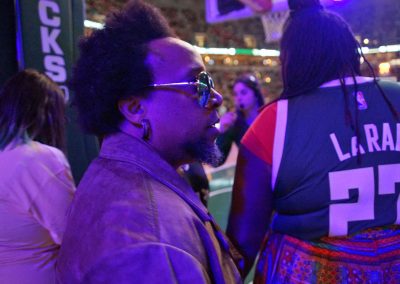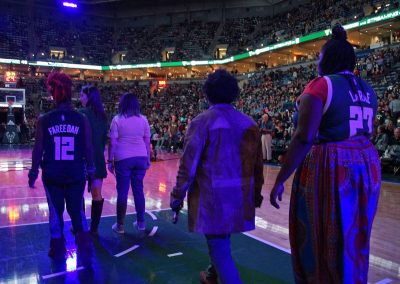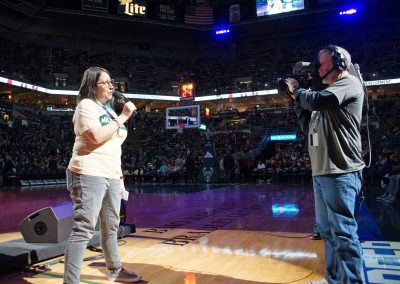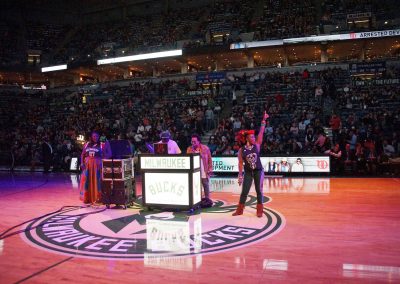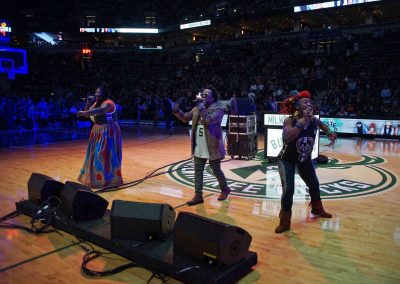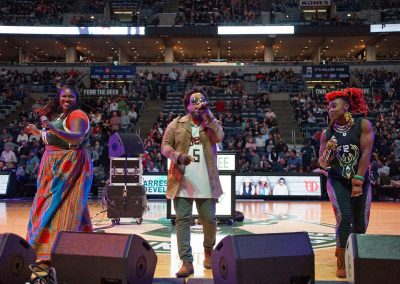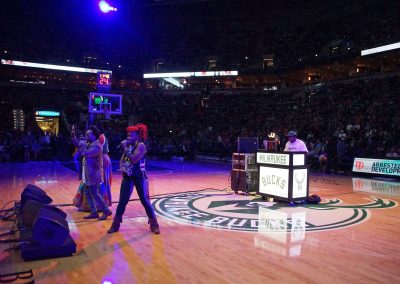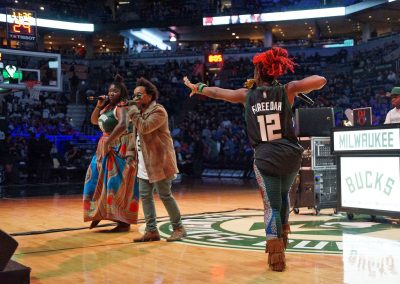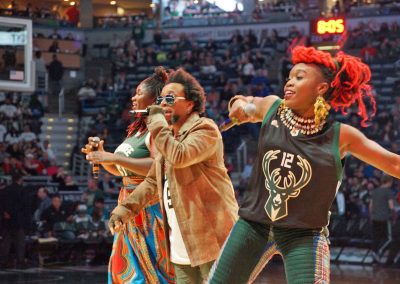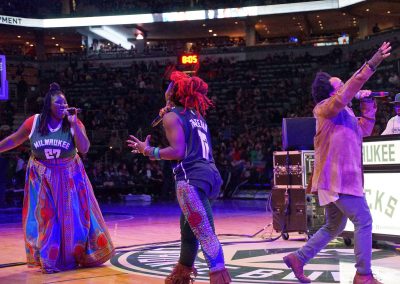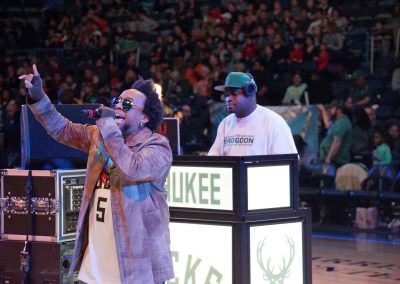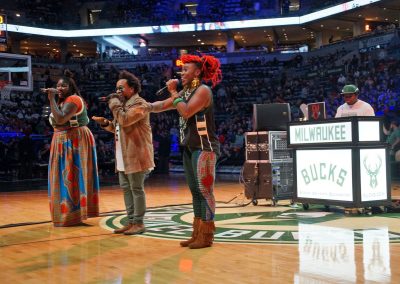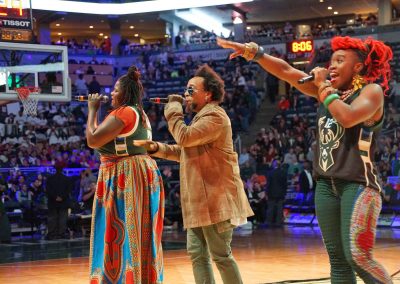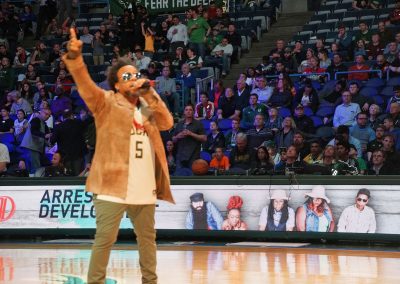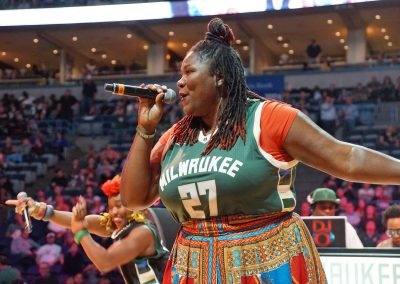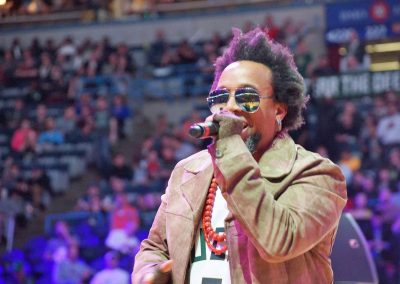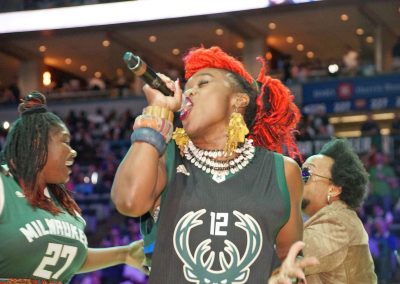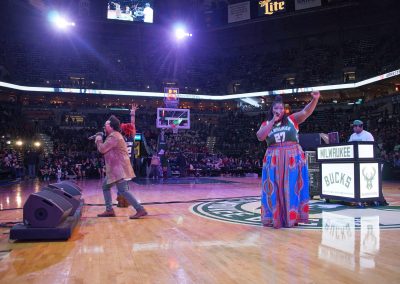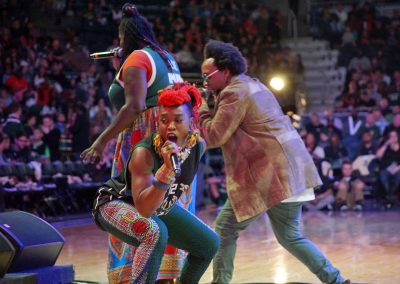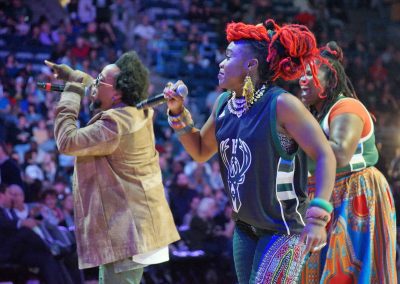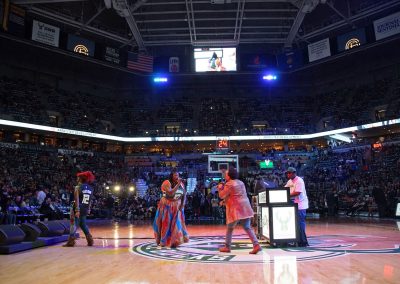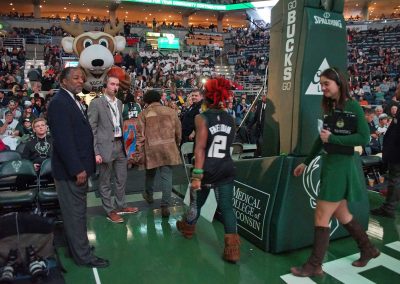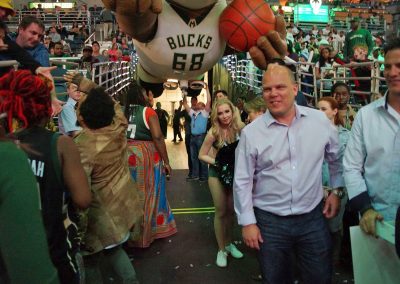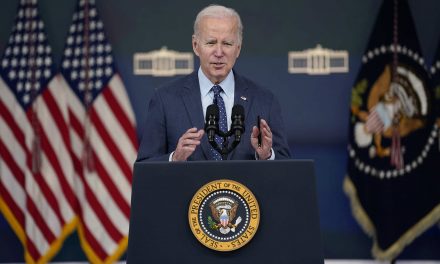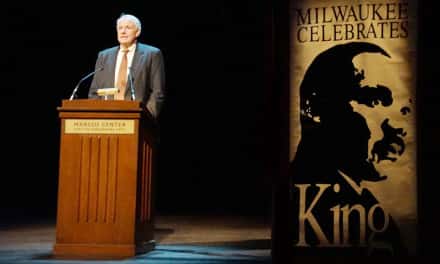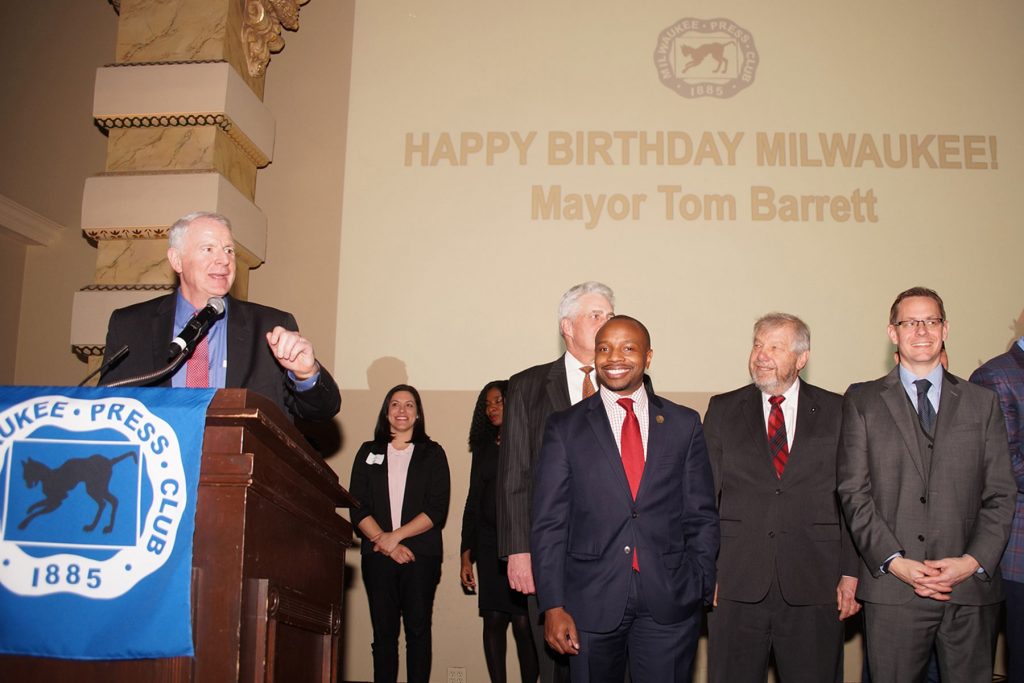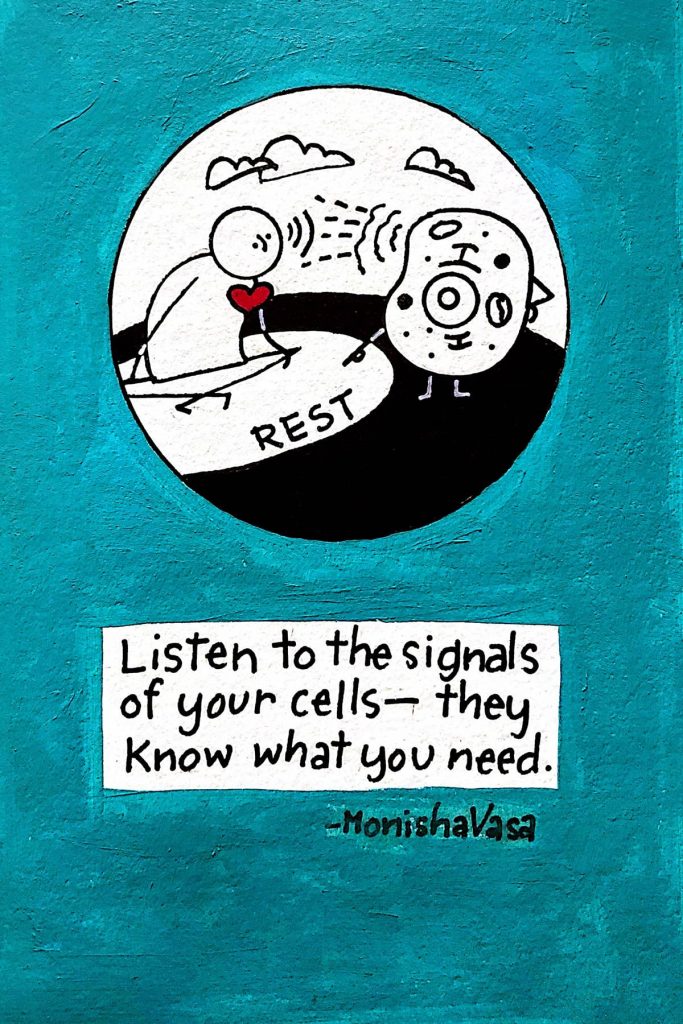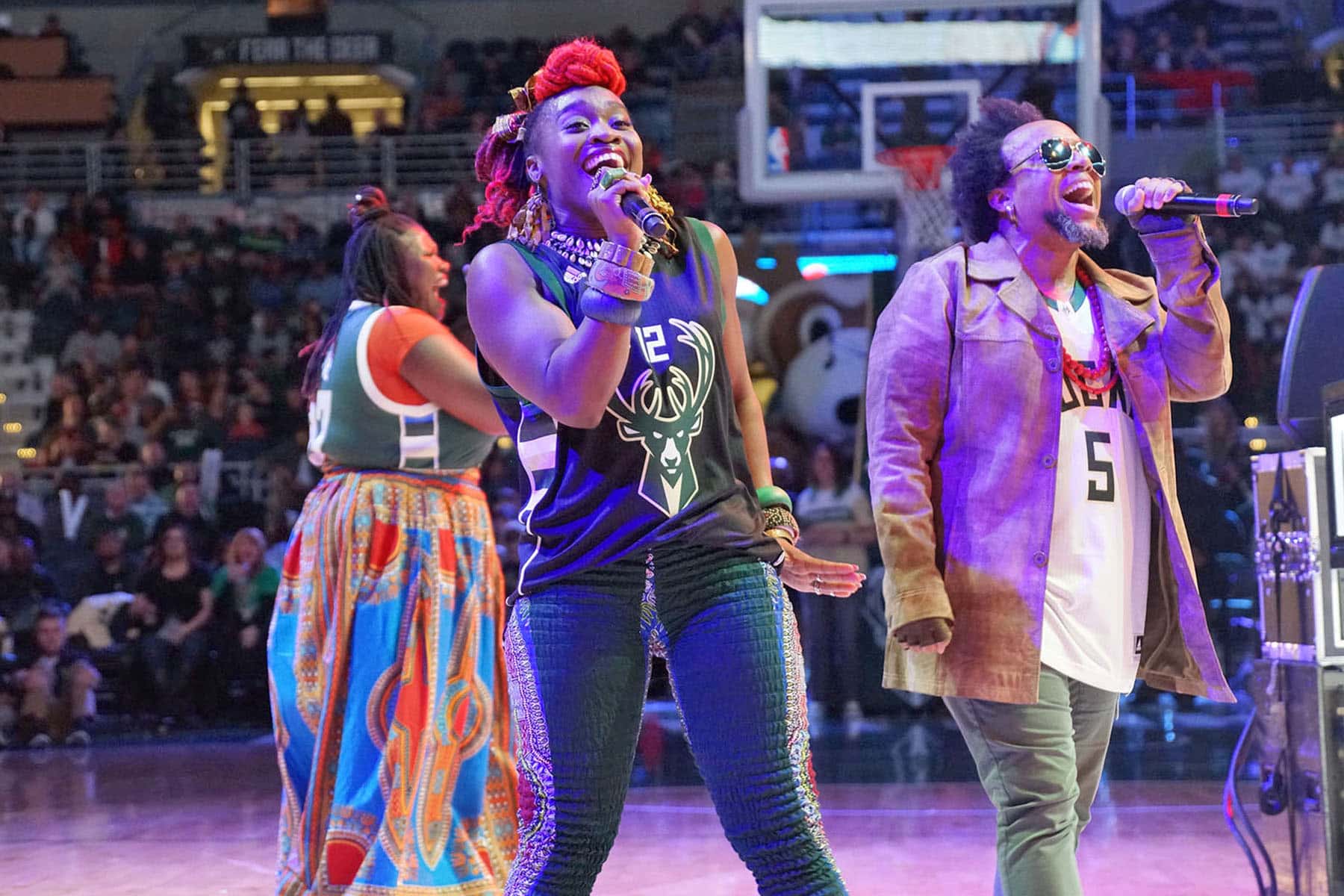
The special “Fan Appreciation Night” mini-concert was just part of the unique community outreach that members of Arrested Development and the Bucks were involved with that day. The group visited the Express Yourself Milwaukee studio to host a music workshop and mentor local youth. For co-founder and lead vocalist Todd ‘Speech’ Thomas, who grew up in Milwaukee, it was a chance to return home and help others.
“Some of the people we met this morning, when we were at Express Yourself, we are now connected with them. We’re going to connect them with people that we know that can truly help to transform their lives,” said Speech. “That’s what Arrested Development is about, what we’ve been about since the very beginning. And that’s what I’m personally about, that’s what brings me life. It brings me excitement to see those things happen.”
Arrested Development (AD) has been a trailblazer within hip-hop since 1991. Their songs have changed the narrative of popular culture, while spreading a unique mixture of consciousness and joy around the globe through their music. The group has used their music awards, media spotlight, and artistic talent to shine a spotlight on social issues that do not get enough public notice. Their hit song “Mr. Wendal“ brought much needed attention to the plight of the homeless, and half of the royalties from the single go to fund the National Coalition of the Homeless.
Arrested Development members, who performed during the last game of regular season play, were Speech (Vocalist, Producer, Co-Founder), Fareedah Aleem (Dancer, Singer), and Tasha LaRae (Singer). These images were taken around their halftime show and exclusive interview session with the Milwaukee Independent.
“Music, for me, is a way to express my true feelings. Whether they’re happy, or sad, or whatever, it allows me to be myself. It allows me to discover myself. It also allows me to show someone who I am just. Music is definitely a great communication tool for me, and it allows me to reach other people on levels that just having a regular conversation might not allow me to do. A perfect example, when we go overseas and there’s someone in the audience that’s battling an issue with her self-image. She might be overweight, and she speaks another language that I don’t speak. But I could still sing, and I could perform, and still communicate with her and reach her. Music steps in where words fail.” – Tasha LaRae
Lee Matz






